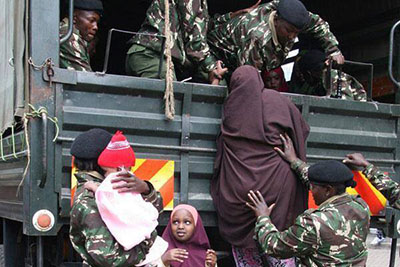Today, CPJ partnered with Reporters Without Borders and Rory Peck Trust in a joint open letter calling on Kenya’s Cabinet Secretary of Interior, Joseph Ole Lenku, to provide clarity on the government’s refugee policy and to exempt journalists from forced relocation to the refugee camps. On March 25, Lenku ordered all urban refugees to relocate to one of two refugee camps in a bid to tighten security amid continuing violence, including an attack on a church in Mombasa. His order came despite the fact that a similar government directive in 2012 was ruled unconstitutional by the High Court.
Collective research by our three organizations shows that exiled Somali and Ethiopian journalists are not safe in Kenya’s refugee camps, where Ethiopian security agents and Somalia’s Al-Shabaab militants operate–the very same threats that most such journalists fled in the first place. Meanwhile, life for refugee journalists in Nairobi has been made even harder than usual. Kenyan police conduct nightly raids on the homes of Somali refugees, demanding bribes to avoid forceful relocation to the camps, local journalists say.
Two Somali journalists registered with UNHCR, Hassan Sheikh Omar and Mahad Omar, were recently arrested and sent to Kakuma Refugee Camp. Hassan, a former Horn Cable Television journalist, is especially vulnerable since he still suffers from a knife wound previously inflicted by Al-Shabaab members in Somalia, local journalists told me. Many other Somali and Ethiopian journalists have been caught up in police sweeps but released, some after paying bribes: Our research indicates at least 16 exiled journalists were arrested in April alone.
Read our full joint letter to Cabinet Secretary Lenku here.
